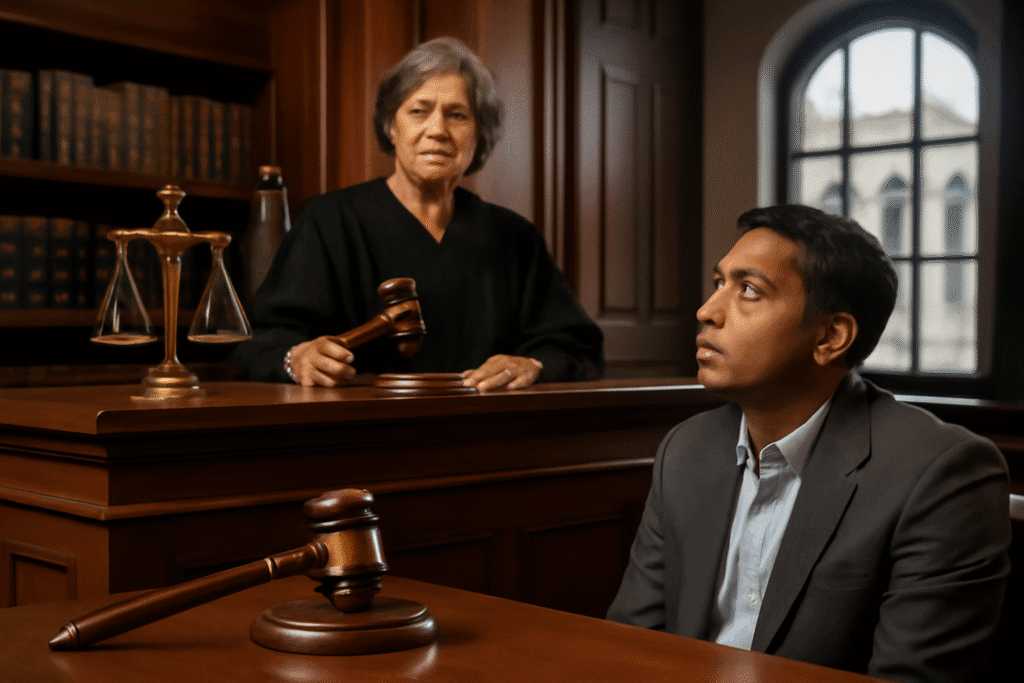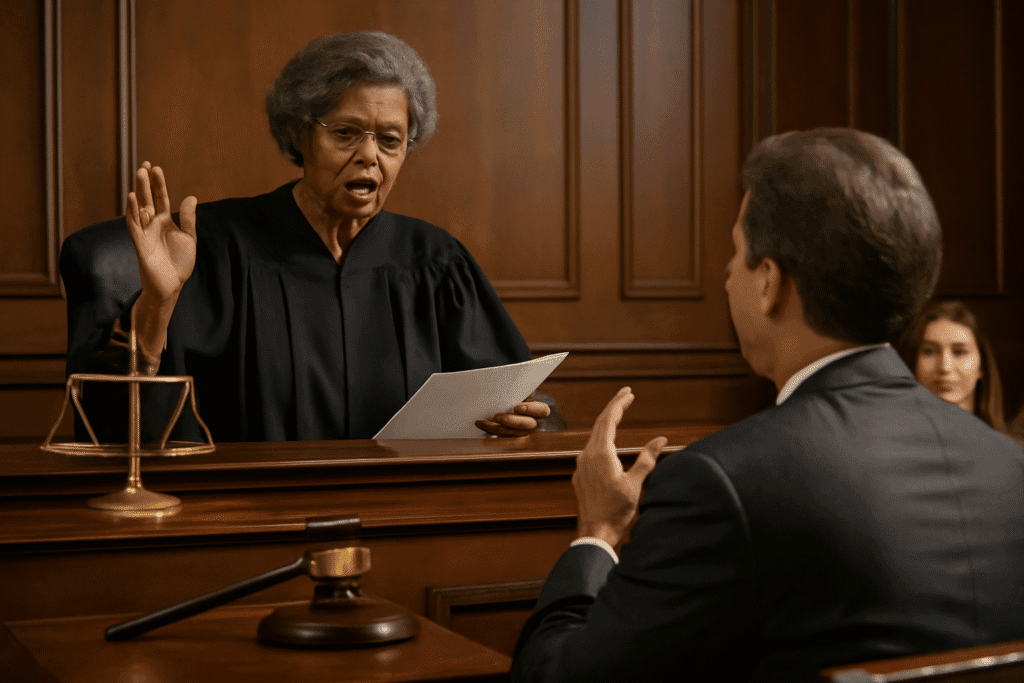Who can overrule a family court : Family court decisions can significantly impact the lives of individuals, particularly in cases involving custody, child support, divorce, and other family matters. But what happens if you disagree with a judge’s ruling? Is there a way to have a decision overturned or altered? In this blog post, we’ll explore who can overrule a family court judge and when such a decision might be possible.

Table of Contents
1. Understanding Family Court Judgments: Who can overrule a family court judge
Family court is a specialized court that deals with matters relating to family law, such as child custody, divorce, domestic violence, and more. Judges in these courts are tasked with making decisions based on the law, the facts produced, and the best interests of the children or other parties involved.
Family court decisions are often complex and differ, can have lasting effects on all involved, so it’s not uncommon for individuals to want to challenge these decisions.
2. Can a Family Court Judge’s Decision Be Overturned?
In most cases, the decision made by a family court judge is final and binding. Eventhough, there are instances where a decision can be reviewed or altered. Here are the primary methods of challenging a family court ruling:

A. Appeal to a Higher Court
One of the most common ways to challenge a family court ruling is by filing an appeal to a higher court. This does not involve a new trial but rather a review of the existing case by an appellate court. The appellate court will consider whether the family court judge made any errors in law or procedure.
- Who can file an appeal?
- Typically, the party who is dissatisfied with the decision (or their attorney) can file an appeal. This could be either parent in a custody case, a party in a divorce proceeding, or anyone directly affected by the court’s decision.
- What can be appealed?
- Appeals are usually based on legal errors (misapplication of the law), procedural mistakes (improper hearings or failure to allow certain evidence), or a judge’s abuse of discretion.
- Who can overrule the family court judge?
- The appellate court, which is often a higher-level court in the same judicial system, has the authority to overrule or alter the decision made by the family court judge. The appellate judge may affirm, reverse, or modify the lower court’s decision, or they may send the case back to the family court for a retrial or new hearing.
B. Judicial Review
In some cases, decisions by family court judges can be challenged through judicial review. Judicial review is a process in which a court reviews the actions of a lower court or administrative body to ensure they were lawful and reasonable.
- Who can file for judicial review?
- Typically, an individual or entity directly affected by the decision can seek judicial review.
- Who can overrule the family court judge?
- The higher court reviewing the case can overrule or remand the decision if they find the judge acted outside of their authority or violated legal principles.
C. Modification of a Judgment
In certain circumstances, a family court judge may be able to modify their own decision. This typically occurs when there has been a significant change in circumstances, such as:
- A parent moves away and is unable to comply with a custody agreement.
- A parent’s financial situation changes, making it impossible to continue paying child support.
- A child’s needs or desires change, warranting a different custody arrangement.
A party wishing to modify a family court decision must petition the same court that made the original decision, and the judge will review whether there has been a substantial change in circumstances that justifies modification.

3. Can a Family Court Judge’s Decision Be Overruled by a Higher Authority?
In some jurisdictions, certain family court decisions may be reviewed by an administrative body or a supervisory judge. However, these bodies typically have limited authority and can only intervene in specific cases, such as when a clear violation of the law or procedural errors have occurred.
4. Common Scenarios for Overruling Family Court Decisions
Overruling a family court judge is not a simple process, and there must be strong legal grounds to do so. Here are a few scenarios in which a family court judge’s decision might be overturned:
- Errors in Law: If the family court judge misinterprets or misapplies the law, an appellate court may reverse the ruling. For example, if a judge bases their decision on a law that has since been overturned or misinterprets the applicable legal standard for custody.
- Procedural Errors: If the family court judge fails to follow proper legal procedures during the trial or hearing, such as allowing inadmissible evidence or not giving the parties a fair chance to present their case, the ruling could be challenged.
- Abuse of Discretion: If the judge’s decision seems arbitrary or unreasonable, a higher court might decide the judge abused their discretion. Family court judges are expected to make decisions based on the best interests of the child or other affected parties, and if this standard is ignored, the decision may be overturned.
- New Evidence: In some rare cases, if significant new evidence comes to lime light that could change the outcome of the case, the decision could be revisited. This typically involves filing a motion for a new trial or modification rather than an appeal.
5. Conclusion
In summary, while family court decisions are generally final, there are several ways in which they can be challenged and overruled:
- Appeal: A higher court can review the decision based on legal errors or procedural mistakes.
- Judicial Review: A higher court can determine if the decision was lawful and reasonable.
- Modification: Family court judges may modify their own decisions if there is a substantial change in circumstances.
The ability to overrule a family court judge is an essential safeguard, ensuring that legal decisions are made fairly and according to the law. However, it’s important to understand that challenging a decision is a complicated and often lengthy process that requires strong legal grounds. If you find yourself in a situation where you need to challenge a family court decision, it’s important to seek expert legal advice to understand your options and the best course of action.
External Link: https://www.judgeanthony.com/blog/who-can-overrule-a-family-court-judge
Internal Link: https://mysportinfo.com/10-unbelievable-bodhana-record/






Leave a Reply